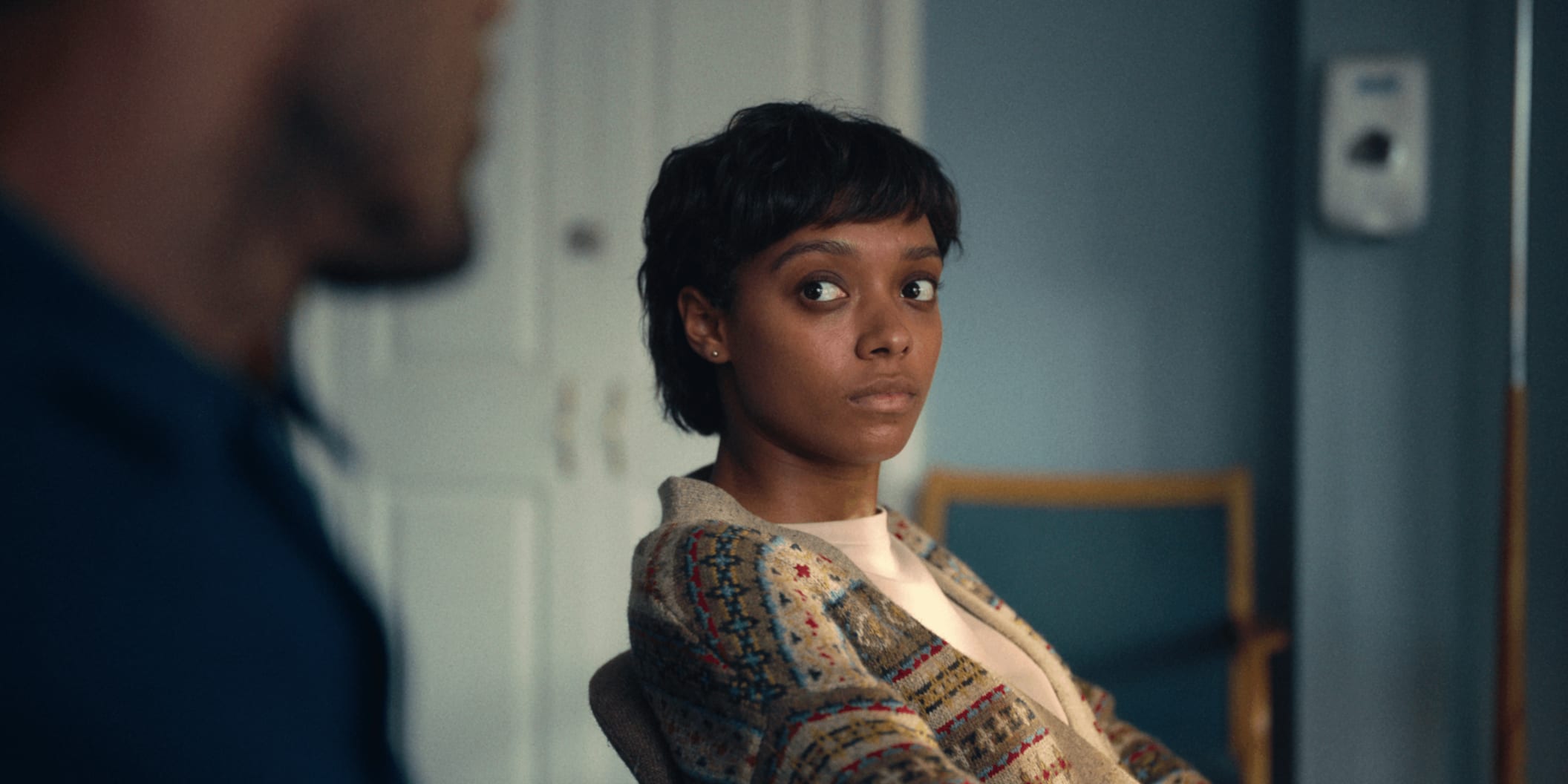How Everything Now tackles eating disorder recovery
The Netflix drama’s exec producer Sian McWilliams told us how she’s portrayed anorexia for a young adult audience
The Netflix drama’s exec producer Sian McWilliams told us how she’s portrayed anorexia for a young adult audience
CN: this story discusses eating disorders
Think of your life in sixth form, what was top of mind? Sure, A Levels, but just as likely a string of blurry drunk nights, the exhilarating should-I-shouldn’t-I when seeing pills and powder being passed around, the obsession with having the most sex and of course, falling in love. Ripley Parker, the 22-year-old creator of Netflix’s freshest teen drama Everything Now brings these elements front and centre from the raw (and hilarious) perspective of Mia Polanco, a teenager working through eating disorder (ED) recovery.
The series opens with Mia, played by Sophie Wilde, completing her seven month long treatment at a hospital and readying herself for a return to her London life. But when Mia is reunited with her besties (played by Lauryn Ajufo, Harry Cadby and Noah Thomas), she realises just how much has changed. No one hangs out at the skate park any longer, sex and drugs run wild and her friends had all their firsts while she was away. In an attempt to keep up and get everything, everywhere all at once, Mia decides to make The Fuck It Bucket, a check list - including breaking the law, being in a relationship, first kiss, first party - to bring her up to speed.
Over eight episodes, Mia navigates the wins and woes of being a teenager while keeping up with her meal plan and fighting the all-consuming thoughts of her illness. This is hardly the first time that eating disorders are being portrayed on screen but Everything Now stands apart in its sensitive focus on recovery rather than the onset of this illness or its diagnosis. Avoiding sensationalised scenes of Mia bent over the toilet or vivid before/after shots of her body, the series is mindful of the conversations it’s starting.
Instead, the show prioritises Mia’s psychological journey, how she makes sense of the world in conjunction with her illness and the impact that the ED has on her friends and family. To understand the nuances and care with which the characters were framed, we spoke to Sian McWilliams, the executive producer of Everything Now.

When you decided to create Everything Now, who did you want the audience to be?
One of the biggest motivations for us to make this show was coming out of lockdown and realising that there's an epidemic going on here with teenage mental health. But we would love the show to bring a broader conversation for people of all ages - parents, siblings and people supporting those that are going through this to to engage with it together. Unfortunately, for many people, eating disorders, addictive behaviours or mental health struggles are a lifelong thing. So it's not just teenagers that are struggling. The story consciously doesn’t discriminate between race, background, gender or age, so we would love everyone to connect with the show.
Most often when we see portrayals of anorexia on screen, there’s an increased focus on showing the body shrivel. But we don’t see this with Mia, in fact we rarely see zoomed in shots of her body. As someone with ED history, this made me feel safe while watching the show.
The biggest misconception around anorexia that we wanted to dispel was that it's just about the way that you look, and if that's fixed, then you're going to be happy. You know, I've never met anyone that's struggled with eating disorders that ever got to a point of being thin enough or strong enough or whatever it is that they're trying to achieve. The illness is really about the mind. And so we weren’t concerned with showing the physical side of it. We're interested in her psychological journey and where that takes her, because it's really about what's going on inside.
We worked with people from eating disorder charities, doctors and those who are experts by experience about how we would portray Mia’s physical appearance in the flashbacks. And they all agreed it would not be advisable to show any difference in the way that she looked. If we were going to show anything physical, it would be her hair being different - with hair loss and hair growth in certain places - brittle nails, brittle bones, that kind of thing. That representation is very truthful. But we never wanted to show a comparison of weight because we knew that that would be extremely triggering, and we didn't want people to be focusing on that.
A lot of times, Mia feels like she’s failing when she’s recovering. Being good at being anorexic becomes a driving factor for her. Where did this train of thought emerge from?
I think this came from our writers room, those of us that had experience with disordered eating, and more widely when we brought experts into the room with us as well. This was a process that we all had been through and had really struggled with, you know, letting go of that companion and the feeling of being good at something, even if it's something that's harming you. Anorexia is such an illness of contradictions; you're damaging yourself, but you're being able to be in control and on top of something. It somehow gives us a sense of self worth, even though it's in turn, giving us self harm. And it's a horrible thing to admit but we wanted to be honest about how dark it can really make you feel.

Were you apprehensive of how much honesty could become too much honesty with such a sensitive subject?
Of course, yeah that was a constant conversation. I think where we drew the line is that we wanted to be honest about how it can make you feel rather than the physical side of things. And there's a really nice response that Dr. Nell (played by Stephen Fry) has when Mia makes that admission. It’s a big achievement to let out the shame because there's so much of it tied to these illnesses, that makes us not want to be honest. But that honesty and openness is a step towards letting go of the eating disorder and of its control over you.
Yes, Mia’s relationship with Dr. Nell and the portrayal of the in-patient treatment really stood out to me. There’s so much stigma and anxiety around hospitals, how did you decide what the show’s narrative would be?
We spoke to lots of people, some of whom have had really positive experiences, and some of whom had very negative experiences with therapists and with in-treatment care. I think Ripley is ultimately an optimist and she wrote the role of the doctor with Stephen Fry in mind. When she struggled when she was younger, Ripley used to listen to the Harry Potter audiobooks that he'd narrated and that was a real comfort, his voice was a comfort.
We considered showing how bad institutions or therapists can be and we know that those are truthful experiences to some people. But ultimately, we want to encourage people to be hopeful. And for Ripley her experience has been positive in terms of seeking help. I guess we also just wanted to have a character like Dr. Nell to be able to send a message to people that was positive, and give both educational and hopeful advice about being able to move forward when you're struggling.
You also mentioned that a lot of people in the writers room, the cast and crew had personal experiences with EDs. What arrangements did you have on set to make sure that the themes did not get too overwhelming?
We had a creative wellbeing therapist on board who is brilliant and previously worked with Michaela Cole on I May Destroy You. She worked closely with Ripley on safeguarding how you translate your own experiences on screen and through creative means. She also worked with the cast and the crew and was available to them as a wider support. There are moments that I still find difficult to watch, because they feel so real and they've come out of real conversations and real experiences. But the therapist worked with us to make sure that there is an element of separation so that you can protect yourself.

As a viewer, that element of separation or a brain pause also comes from the humour in the show. What influenced Mia’s dry, sardonic tone of voice?
That's very nice to hear, it's ultimately Ripley’s voice and she's incredibly funny, dry and self deprecating. As Brits, that's how we are, that's how we deal with stuff. I had been very interested in exploring this area of mental health and particularly eating disorders. But what none of us wanted to make was something that was misery porn or glorifying or relishing in the pain. Also the reality is, in the darkest of situations, you do find reasons to laugh and that feels very truthful. One of the things Ripley said right at the beginning was that Mia had been away from the world and she was absolutely desperate to get back. And there's a beauty when she comes out, everything looks more vibrant and fun. So there is an elevated perspective of the world having been away from it for so long, which is joyful.
Speaking of misery porn, Euphoria also tackles sensitive, young adult themes and has been called out for glamorising pain. Were there any learnings that you took from the show and what it got right or wrong?
Yeah, Euphoria is an incredible series but I think the ultimate difference is that you never really feel like Rue (played by Zendaya) is trying to recover. She wants to be left alone in the pain that she's in and in the addiction. But with Mia, as much as she hits obstacles and falls along the way, she does want to get better. We wanted to make a show that was about hope and optimism. And Mia’s surrounded by brilliant, lovely, caring people, and sometimes she can't see that because her illness is in the way. But everyone's rooting for her and she's rooting for herself.
Mia’s support system is a focal point in the series. Why did you decide to include their perspectives and how the illness impacted them?
When I first received Ripley’s script, it was very singular. It was very much Mia’s journey and that’s completely understandable because that was Ripley’s experience. But the more we got to know the other characters, the more interested we were in their perspective and how it affected them. The brothers episode - where we see Alex's perspective - came out of the writers room.
A contributor spoke very openly about their experience of being a sibling to someone with an eating disorder, and we were really struck by how unique and different that story was. We wanted to show what it’s like when someone says your sister may die and you’re going through your own struggles but have to keep it in check. So, Mia resents the fact that Alex seems to have everything together and life is easy. And Alex resents that Mia gets all of the space to not be okay and the support that he's not getting. So it's really nice to see them connect at the end of that episode.
Everything Now is available to watch on Netflix



